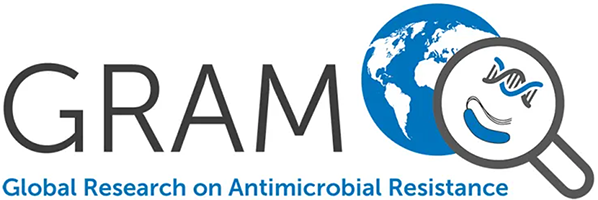GRAM to host 29th January webinar on AMR tools and resources
1 January 2026
The 90-minute session, ‘AMR tools and resources: An introduction for health professionals and researchers', will introduce key resources designed to support professionals working to understand and address AMR.
GRAM invites researchers to explore AMR data in repository
13 November 2025
AMR data repository contains datasets covering nearly 70 countries and 250,000 patients
GRAM Project Nairobi workshop targets AMR in Africa
20 March 2025
The GRAM Project welcomed public health leaders from 40 African organisations this month in Nairobi to address the growing threat of AMR. The AMR Data Analysis Workshop, organised by GRAM partners from Oxford and the Institute for Health Metrics and Evaluation (IHME), convened researchers and officials from ministries of health, and other academic and policy institutions, to discuss emerging trends and review key skills. The workshop was hosted by the Centre for Epidemiology and Modelling Analysis (CEMA) from 11-14 March, with support from the Wellcome Trust.
GRAM Bangkok workshop strengthens local capacity for AMR burden estimation
1 January 2025
Sessions supported researchers and decision-makers who encounter AMR across South and Southeast Asia
Geetanjali Kapoor delivers webinar series on AMR surveillance best practices
24 October 2024
Lectures address real-world challenges of AMR surveillance, based on prior experiences in the field
Antibiotic resistance has claimed at least one million lives each year since 1990: GRAM
16 September 2024
Landmark GRAM Project study of global AMR burden over time forecasts a sharp rise in deaths, with 39 million lives lost between now and 2050
GRAM, IDDO announce AMR data repository to strengthen research and improve access
10 July 2024
Oxford database provides a secure, and re-usable resource for AMR researchers worldwide, including those in low- and middle-income countries
GRAM study reveals rising antimicrobial resistance in enteric fever across 75 countries, affecting millions
15 February 2024
Findings reveal resistance patterns for a priority pathogen--also known as typhoid fever--with high mortality and morbidity in resource-constrained settings
AMR linked to 1M deaths in Africa, according to GRAM study
20 December 2023
Findings suggest urgent need to address burden of drug-resistant infections across continent, one of the highest levels worldwide
Antimicrobial resistance poses threat in all 35 countries in the Americas
8 August 2023
More than 43% of infection-related deaths in the region were tied to AMR, according to GRAM Project study
GRAM Project welcomes new Oxford PI: Prof Ben Cooper
4 July 2023
The epidemiologist and infectious disease modeller will lead the project through its second phase (GRAM-2) which commenced last year
Bacterial infections linked to one in eight global deaths, according to GRAM study
22 November 2022
Data showing 7.7 million deaths in a single year from 33 bacterial infections can guide measures to strengthen health systems, particularly in low-income settings
GRAM visualization tool tracks country-level AMR and related metrics
22 November 2022
Interactive app allows users to explore data underlying estimates of global antimicrobial resistance burden
GRAM Project begins second phase
26 October 2022
The Global Research on Antimicrobial Resistance (GRAM) Project has begun its second phase of research after receiving a multi-year award from the UK Fleming Fund, Wellcome Trust, and Bill and Melinda Gates Foundation.
GRAM Project moves to new Oxford site
1 April 2022
The Global Research on Antimicrobial Resistance (GRAM) Project has a new centre of operations at the University of Oxford, after moving this month from the Big Data Institute to the Centre for Tropical Medicine and Global Health, under the leadership of Dr Benn Sartorius (PI) and Professor Christiane Dolecek (co-PI).
The Global Research on Antimicrobial Resistance (GRAM) findings launch
4 February 2022
Following publication of the GRAM study, the Wellcome Trust, Fleming Fund, and Bill and Melinda Gates Foundation hosted a webinar on 4 February 2022 to discuss the results, and the threat to global health posed by AMR.
Antibiotic resistance caused more than 1.2M deaths in 2019, according to landmark GRAM study
20 January 2022
Drug resistant infections are now a leading cause of death worldwide, above of HIV/AIDS or malaria, with many historically treatable ailments now leading to fatalities.
#AMRSOS
20 January 2022
Antimicrobial resistance (AMR) is now threatening healthcare systems worldwide. As antibiotics become ineffective, physicians are left powerless to treat common infections. That leaves us asking the question: how can we prevent antimicrobial resistance in 2022?
GRAM study provides the first longitudinal estimates of global antibiotic consumption in 204 countries from 2000 to 2018
12 November 2021
Global antibiotic consumption rates increased by 46 percent in the last two decades, according to findings published in Lancet Planetary Health which also suggest lack of treatment access in some areas.

